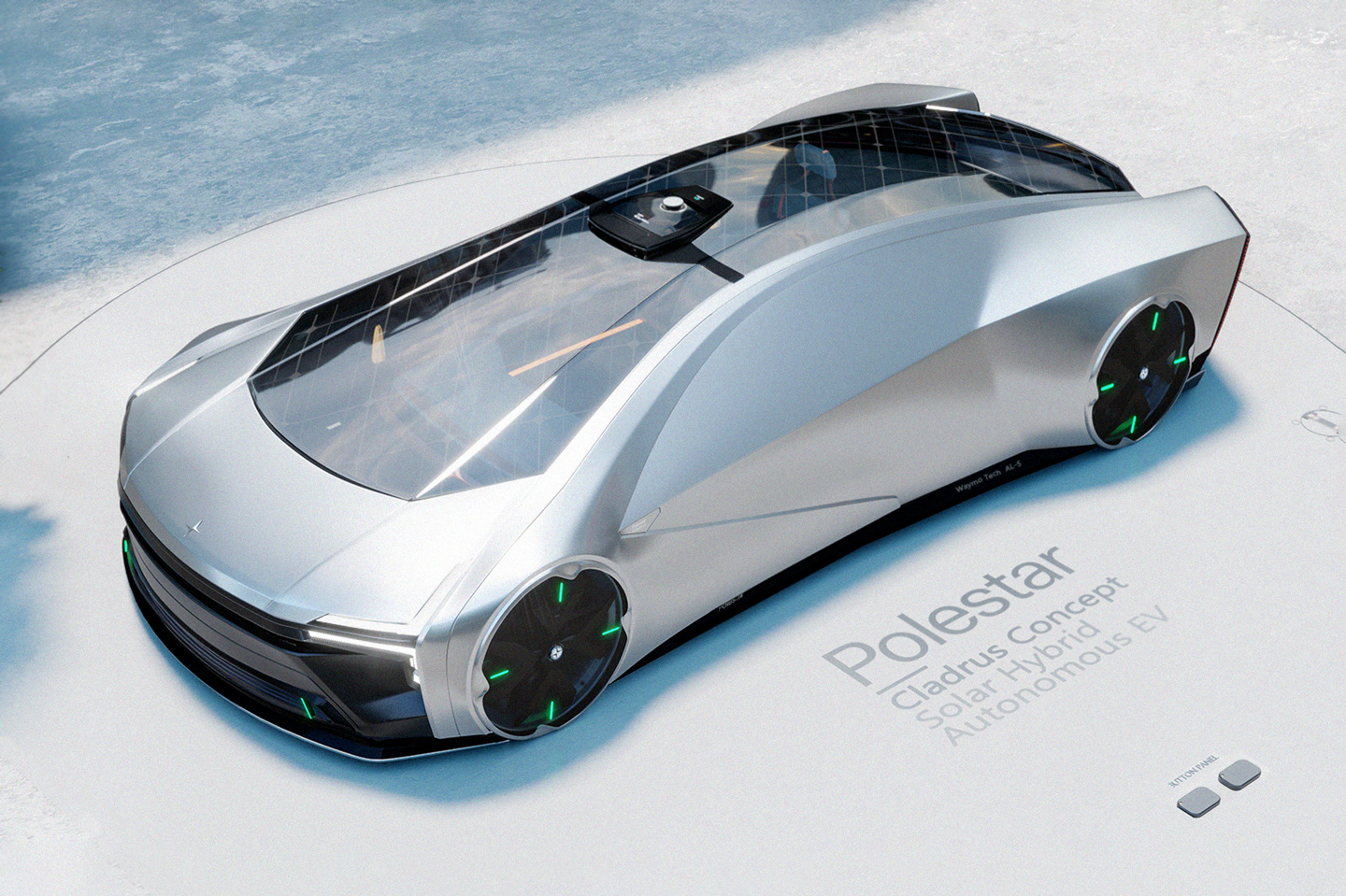
Borrowing from the LightYear One EV’s framework, the Polestar Cladrus concept car comes with transparent solar panels built into its roof, which feed energy to the car’s graphene-based battery and body panel. If that wasn’t cutting-edge enough, the car’s also been envisioned with level 5 autonomy, thanks to the presence of a Waymo-esque sensor hub on the front of the roof.
Designer: Harshul Verma
The Cladrus embodies everything Polestar stands for. It’s cutting-edge, runs on an electrical grid, puts drivers in the lap of luxury, and boasts of a Scandinavian design language that gives the car its signature clean aesthetic. The car also details out the partnership agreement between Polestar and Waymo by delivering something that looks rather palpable.
The name Cladrus comes from the mythical Greek bird Caladrius, known for its healing and regenerative powers. The name in the context of the car is a hat-tip to Polestar’s global mission of championing sustainability by recycling parts of its automobiles. The company’s recent car, the Precept, was hailed for creating a recycling system for aluminum, and also for also using 100% recycled plastic to weave the yarn used inside the car’s interiors. Cladrus, even though a concept, champions that attitude too by hinting at the use of recycled metals and plastics in the entire car.
The entire automobile, from front to back and top to bottom, is an absolute visual treat to look at. Designer Harshul Verma used simple, edgy forms to create the car’s delicate balance and dynamic volumes. The Cladrus comes with a sprawling sun-roof that goes from front all the way to the back. Given that there’s no traditional driver or cockpit, transparency and visibility weren’t a pressing issue. Instead, the car provides a panoramic roof that illuminates the interiors, and ditches the windows (and even doors) altogether to create a sense of privacy.
How does one enter a car without doors? Well, the entire roof pops open from the back, creating a ramp that leads right into the Cladrus’ spacious interiors. The Cladrus comfortably seats 4, and can fit as many as 5 passengers within. A sofa and two armchairs create a wonderful luxurious in-car experience – an experience that’s only further heightened by the Cladrus’ wood-panel flooring.
Verma posits that his concept hopes to redefine EVs. Not only does the Polestar Cladrus run (at least supplementally) on solar power, but the power is supplied to graphene-based batteries instead of the traditional lithium-ion ones. Since graphene can be used as a supercapacitor, the solar panels end up being much more efficient, and Verma mentions that graphene enables the solar panels to directly power the car, instead of routing it through the battery. Any extra energy that isn’t immediately used by the car gets stored in its battery, allowing Cladrus to run at night too. The designer doesn’t mention if there’s an ability to charge the car traditionally, but considering Polestar comes from Sweden which sees a dramatic decrease in solar energy during the winters, one would expect the concept car to have some sort of failsafe!